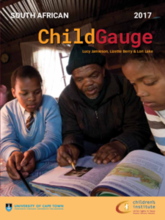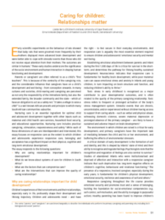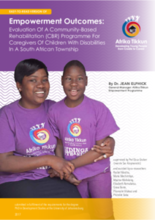childrens_living_arrangement
children_living_without_bio
Displaying 211 - 220 of 334
This paper presents qualitative findings of the resilience processes of young women who have left the care of Child and Youth Care Centres in Gauteng, South Africa.
This study explored the scholastic performance of orphaned learners aged eight to ten from ten public primary schools in Mankweng Circuit of Limpopo Province, South Africa, utilizing quantitative and qualitative methods that included semi structured interviews, observations and questionnaires.
The South African Child Gauge® is published annually by the Children’s Institute, University of Cape Town, to monitor progress towards realising children’s rights. This issue focuses on children and the Sustainable Development Goals.
In this essay from South African Child Gauge 2017, the authors seek to respond to the following questions: Why are caring relationships important for children’s development? What do we know about systems of care for children in South Africa? What are the factors that can compromise care? What are the interventions that can improve the quality of caring relationships?
This article provides a discussion of the theoretical basis underpinning safety and risk assessment in child protection, and further describes the empirical research process involved in the development of safety and risk assessment tools and training materials for social workers in the South African child protection field.
The aim of the paper is to explore selected pertinent challenges that impede child and youth care centres (CYCCs) from providing holistic support and care to children found in need of care as stated in the Children’s Act No. 38/2005.
This brief summarises key findings of a qualitative study of the family strengthening approach of the Isibindi model.
This report presents the results of an evaluation of Afrika Tikkun's Empowerment Programme.
This video discusses the challenges social workers face in placing children for adoption in South Africa.
This article discusses the results of a cross-country research project in Sub-Saharan Africa regarding the impact of social protection on loss of parental care, support to foster or kinship care and quality of care and wellbeing in Sub-Saharan Africa.



